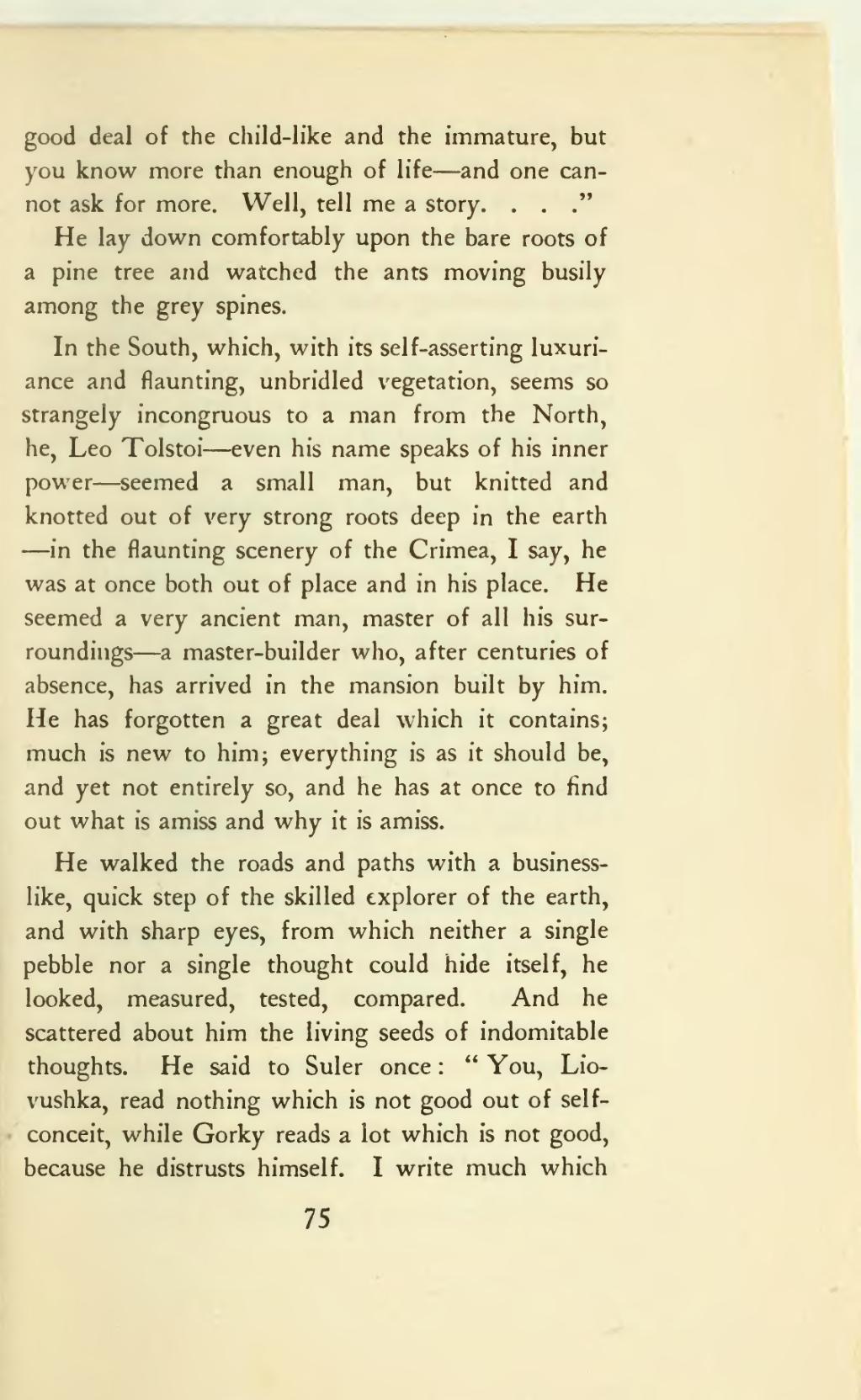good deal of the child-like and the immature, but you know more than enough of life—and one cannot ask for more. Well, tell me a story. . . ."
He lay down comfortably upon the bare roots of a pine tree and watched the ants moving busily among the grey spines.
In the South, which, with its self-asserting luxuriance and flaunting, unbridled vegetation, seems so strangely incongruous to a man from the North, he, Leo Tolstoi—even his name speaks of his inner power—seemed a small man, but knitted and knotted out of very strong roots deep in the earth—in the flaunting scenery of the Crimea, I say, he was at once both out of place and in his place. He seemed a very ancient man, master of all his surroundings—a master-builder who, after centuries of absence, has arrived in the mansion built by him. He has forgotten a great deal which it contains; much is new to him; everything is as it should be, and yet not entirely so, and he has at once to find out what is amiss and why it is amiss.
He walked the roads and paths with a businesslike, quick step of the skilled explorer of the earth, and with sharp eyes, from which neither a single pebble nor a single thought could hide itself, he looked, measured, tested, compared. And he scattered about him the living seeds of indomitable thoughts. He said to Suler once: "You, Liovushka, read nothing which is not good out of self-conceit, while Gorky reads a lot which is not good, because he distrusts himself. I write much which
75

